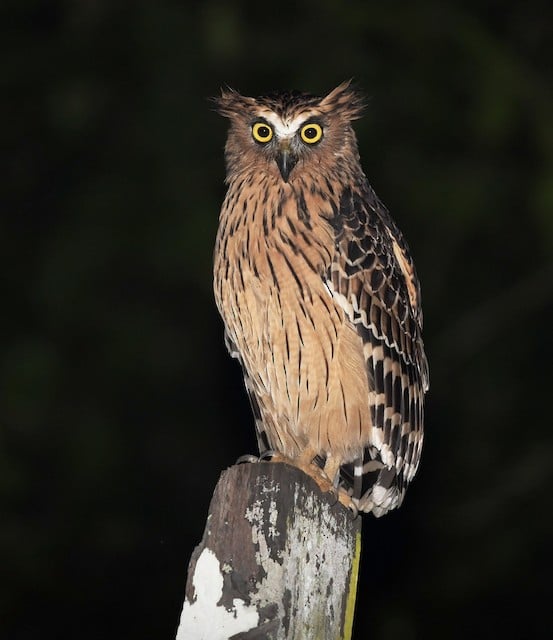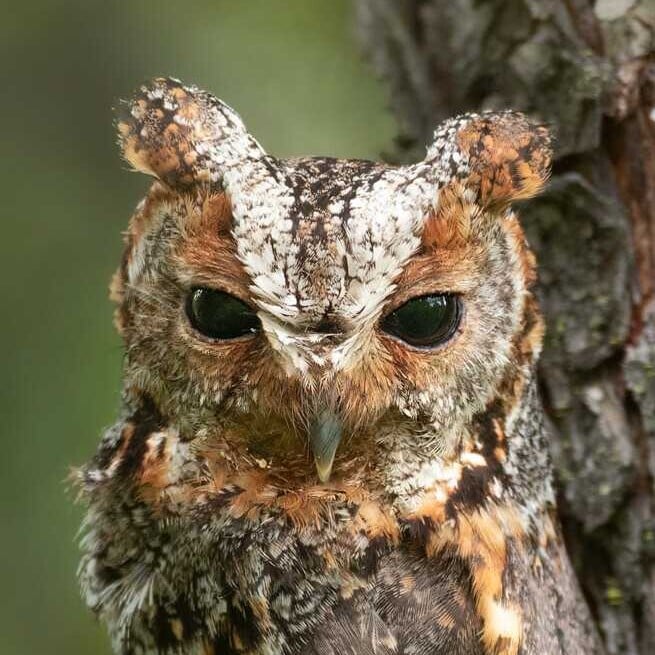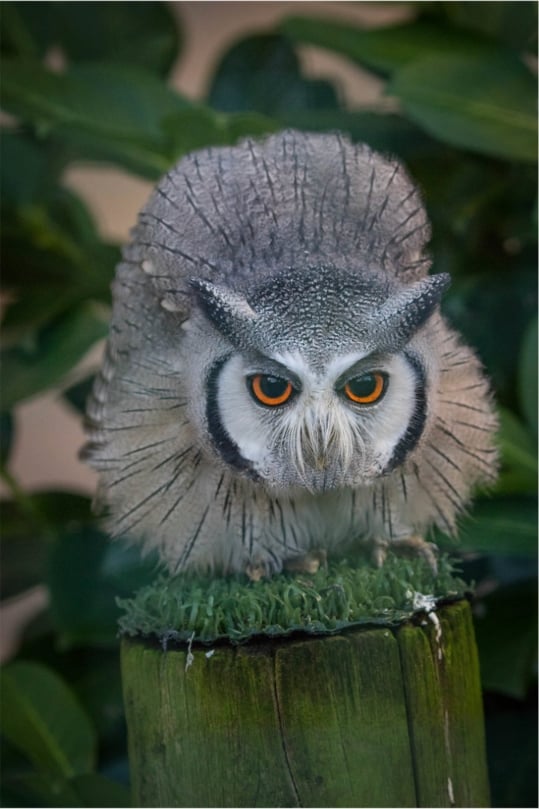Somewhat clickbait headline, but this is the last owl for me to come to appreciate in an aesthetic way. I at least want to give it the courtesy of sharing it with you all, and maybe the skeptics among us can find something in this owl.
The currently named Verreaux Eagle Owl is named after a not so nice person, which doesn’t help it start off on the best note. Verreaux was a grave robber and trafficker of human remains, so the birds named after him are going to be renamed in the near future. Other names currently in use for this owl are the Milky Eagle Owl (Milky doesn’t sound the best to me either) and the Giant Eagle Owl. I’d be ok with that last one. I’m going to call it the VEO for the rest of this post.
Along with many of the Eagle Owls, the VEO have be reclassified to the genus Ketupa, which is the Fish Owls, and our friend the Buffy Fish Owl is the example species of the genus.

Buffy Fish Owl
The VEO is the largest owl in Africa, and is found almost everywhere below the Sahara except in the very deepest regions of rainforest. Its preferred environment is dry savannah, so distribution is uneven. It would also be a large owl anywhere in the world, as it is 4th largest owl in both mass and length in the world. It is also the largest tropical owl. I’ll post the whole wiki entry on size in the commentsb it’s pretty interesting and I don’t want to cut it short.
They have small ear tufts that are sometimes hard to see, but their unique defining feature are their pink eyelids, a feature not possessed by any other owl. They are thought to be used to attract a mate as they become bolder colors during mating season. They are broader and bulkier in appearance than other owls of their same parts of the world.
Its call is one if the loudest and deepest bird calls in the world, and is said to resemble the sound of a large frog or a leopard.
They may have one of the most diverse diets of any owl. Only about 6 studies have been done on their diet, but over 100 prey species have been confirmed, ranging in size from insects weighing less than 5 g (0.18 oz) to ungulates (hooved mammals) weighing at least 10 kg (22 lb)! One of their favorite foods though, is hedgehog. They don’t have much competition when it comes to other animals that will try and eat one of those.
So, with that introduction, what are your thoughts on the VEO? It’s got great stats and things that should make it a very cool and popular owl, it just seems to be not near as photogenic as many other owls.


That first photo of VEO looks like me in the morning when I forget to drink water before bed lol
Overall, not too ugly, definitely not the prettiest owl. And I’d agree that “Milky Owl” really isn’t any better.
This owl definitely scores points back by being able to eat large mamels and hedgehogs!
To be fair, most of those larger animals are pretty likely due to scavenging.
The hedgehog thing is pretty impressive though, much like the Great Horned Owl being the only real predator of porcupines in the Americas.